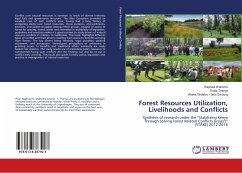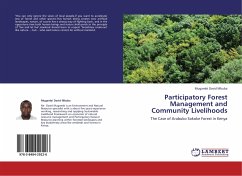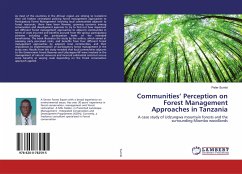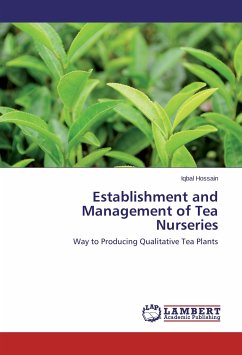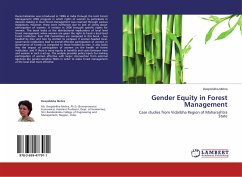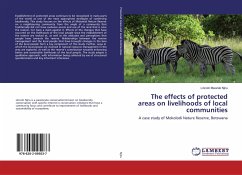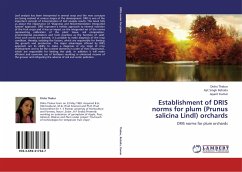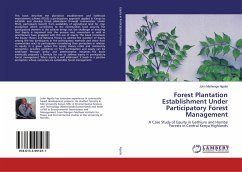
Forest Plantation Establishment Under Participatory Forest Management
A Case Study of Equity in Gathiuru and Hombe Forests in Central Kenya Highlands
Versandkostenfrei!
Versandfertig in 6-10 Tagen
43,99 €
inkl. MwSt.

PAYBACK Punkte
22 °P sammeln!
This book describes the plantation establishment and livelihood improvement scheme (PELIS) a participatory approach applied in Kenya to establish and develop forest plantations through communities. Under PELIS, participants benefit from availability of agricultural land for crop production which contributes to the communities food security. The participatory element in the scheme brings out the challenge of ensuring that Equity is ingrained into the process and researchers as well as practitioners have grappled with this use of equity. The book introduces the Equity Theory and Rational Theory ...
This book describes the plantation establishment and livelihood improvement scheme (PELIS) a participatory approach applied in Kenya to establish and develop forest plantations through communities. Under PELIS, participants benefit from availability of agricultural land for crop production which contributes to the communities food security. The participatory element in the scheme brings out the challenge of ensuring that Equity is ingrained into the process and researchers as well as practitioners have grappled with this use of equity. The book introduces the Equity Theory and Rational Theory to address the question of Equity among the key participants in the participatory methods and show how communities react to participation considering their perception in relation to equity in a given system. The equity theory ratios and community perception, provides guidelines on how participation and equity can be addressed through policy and administrative initiatives. The book eventuallyproposes a formula for use to address equity in participatory forest management. When equity is well addressed, it leads to a positive perception whose outcomes are sustainable forest management.




